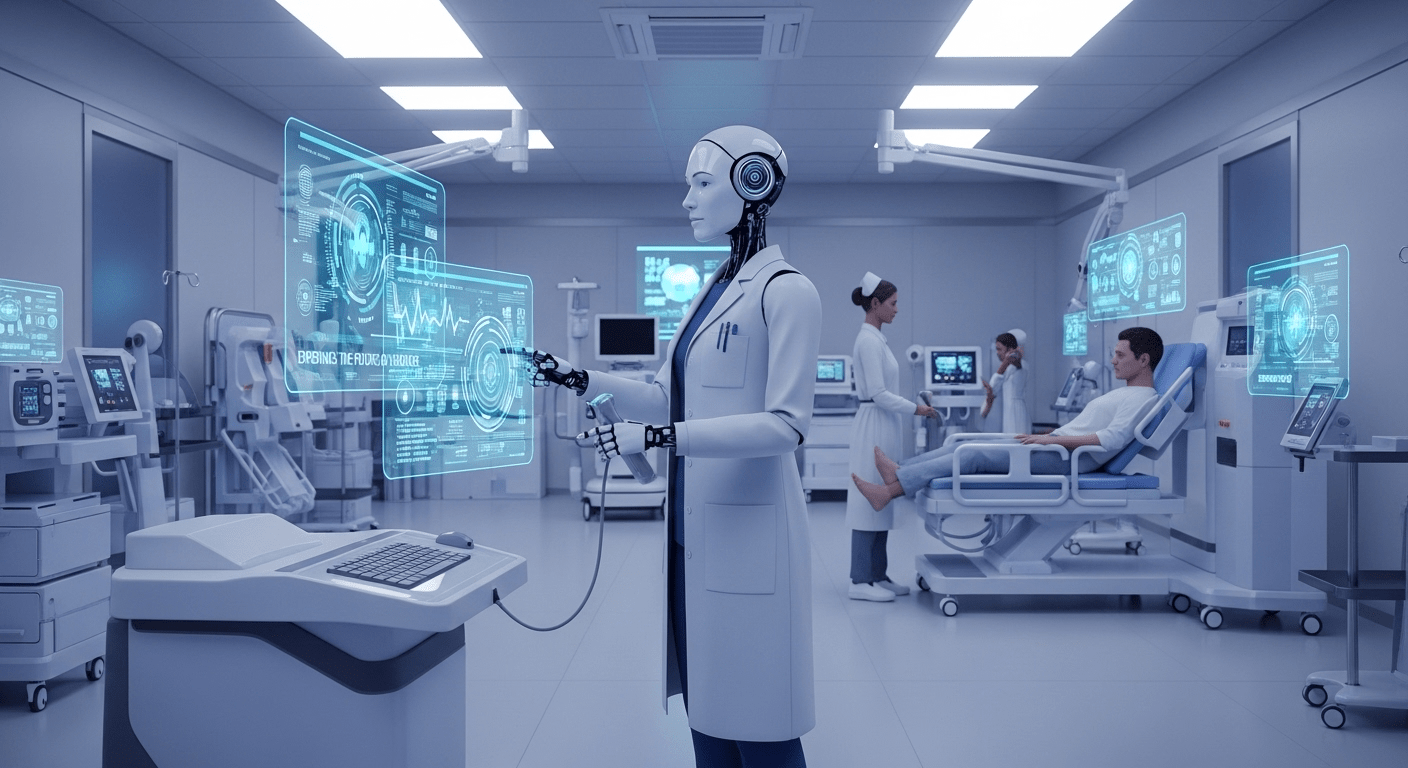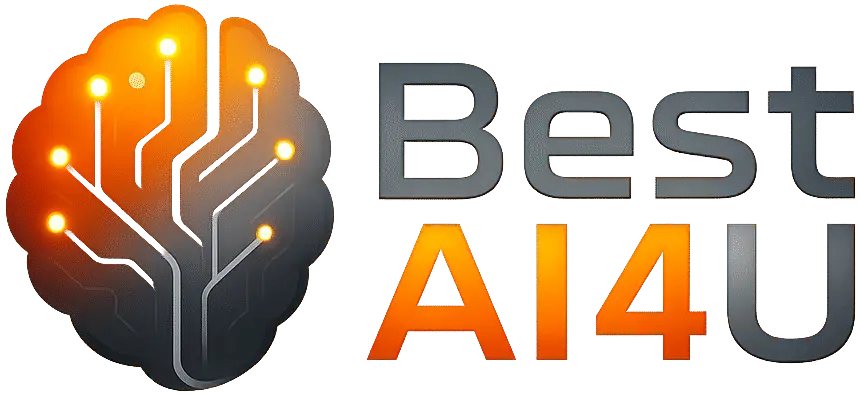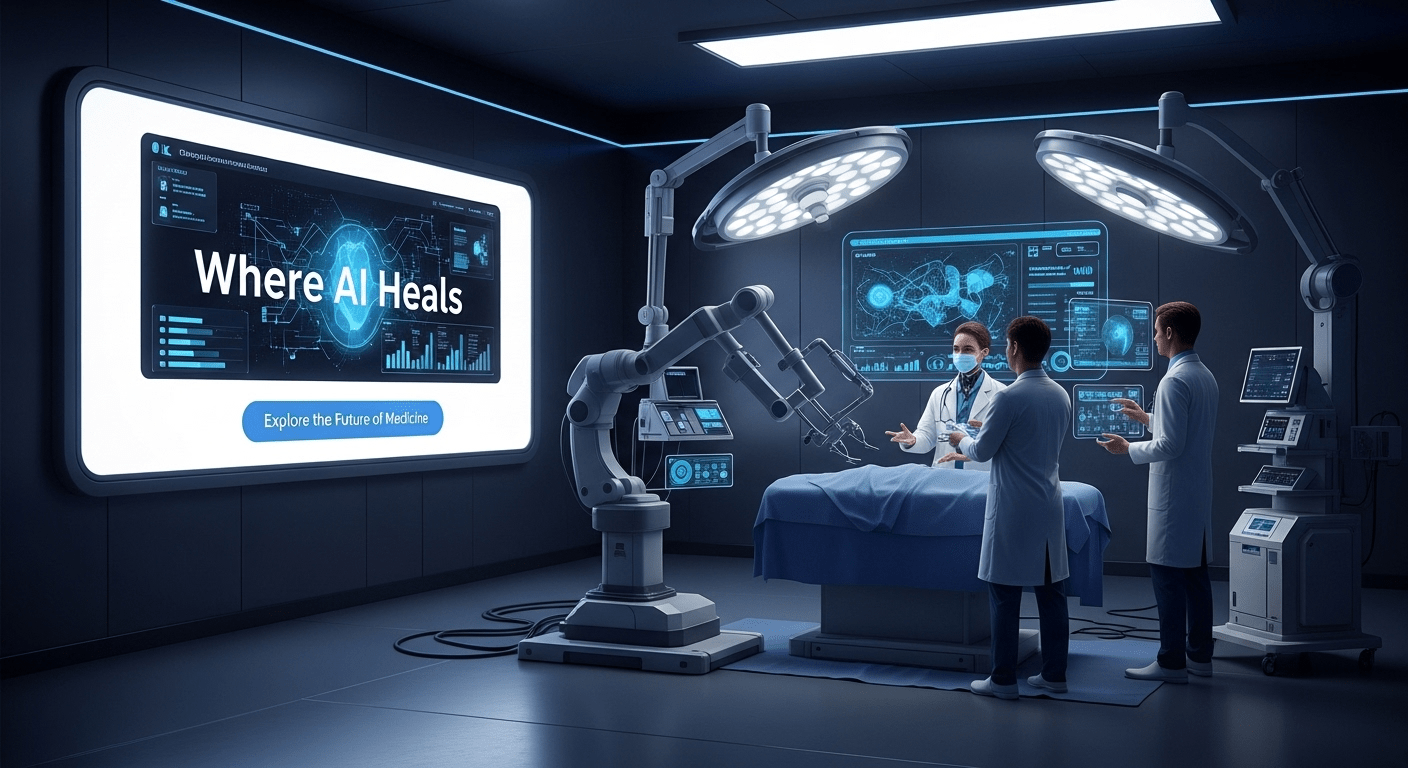Introduction: The Rise of AI in Modern Healthcare
Healthcare in 2025 is not just about doctors and stethoscopes—it’s about data, precision, and intelligent automation. Artificial Intelligence (AI) is no longer a futuristic concept. It’s already reshaping how we diagnose diseases, plan treatments, and accelerate medical research.
From radiology to robotic surgeries, AI is enhancing both patient outcomes and healthcare efficiency. Let’s dive deep into how AI is transforming healthcare across three major pillars: Diagnosis, Treatment, and Medical Research.
1. AI in Diagnosis: Precision at Lightning Speed
AI-driven diagnostic tools are revolutionizing how diseases are detected—earlier, faster, and more accurately.
a. Radiology and Imaging
AI models like Google’s DeepMind and Zebra Medical Vision can now detect anomalies in X-rays, CT scans, and MRIs with accuracy rivaling top radiologists. In 2025, hospitals routinely use AI to screen for:
- Lung cancer
- Breast tumors
- Stroke indicators
- Bone fractures
b. AI in Pathology
Digital pathology platforms use machine learning to analyze biopsy samples, identifying cancer cells or infections that the human eye might miss.
c. Early Detection Algorithms
Wearables and mobile health apps use AI to flag irregularities in heart rate, glucose levels, or respiratory patterns—empowering early intervention for diseases like:
- Diabetes
- Atrial fibrillation
- Sleep apnea
🧠 Fact: In 2025, over 60% of global hospitals have adopted AI-assisted diagnostic solutions.
2. AI in Treatment: Personalized, Predictive, and Precise
a. Personalized Medicine
AI systems analyze a patient’s genetic profile, lifestyle data, and medical history to suggest custom treatment plans. This is especially impactful in:
- Cancer therapy (precision oncology)
- Psychiatric treatment (AI-guided antidepressant selection)
- Chronic disease management
b. Robotic Surgery
Robotic arms powered by AI are now capable of performing complex surgeries with millimeter-level precision. Surgeons use augmented reality interfaces guided by AI for:
- Neurosurgeries
- Orthopedic implants
- Cardiovascular procedures
c. Virtual Health Assistants
AI-powered bots and assistants are helping manage:
- Post-operative care
- Medication reminders
- Patient FAQs
- Emotional support (via conversational AI)

Socho agar aapke surgery ke waqt ek AI doctor aapke real doctor ke saath kaam kar raha ho—toh woh kaisa lagega? Dekho is visual mein AI ka real-time magic!
3. AI in Medical Research: Accelerating Discovery
a. Drug Discovery with AI
Traditional drug development takes 10+ years. But in 2025, AI models like AlphaFold, BioGPT, and DeepChem are accelerating:
- Protein structure prediction
- Molecule screening
- Side effect simulation
Pharmaceutical companies now rely on AI to test thousands of compounds virtually before human trials—cutting years off R&D cycles.
b. Clinical Trials Optimization
AI helps:
- Identify ideal trial participants through EHR data analysis
- Predict trial outcomes using historical data
- Reduce trial drop-out rates by enhancing patient experience
c. Predictive Epidemiology
AI systems analyze real-time health data and environmental factors to predict disease outbreaks—helping prevent pandemics like COVID-19.
Real-World Use Cases in 2025
| AI Tool / Solution | Function | Institution/Provider |
|---|---|---|
| IBM Watson Health | Cancer diagnosis & treatment suggestions | Mayo Clinic, USA |
| PathAI | Histopathology analysis | Partners Healthcare, Boston |
| Aidoc | AI radiology workflow | Multiple hospitals globally |
| Tempus | Personalized cancer care | Precision medicine labs |
| Google DeepMind | Eye disease and brain scans | NHS (UK), global partnerships |
Benefits of AI in Healthcare
✅ Early and Accurate Diagnosis
✅ Faster Drug Development
✅ Cost Reduction for Hospitals
✅ Improved Patient Outcomes
✅ Reduced Physician Burnout
✅ Enhanced Rural Healthcare Access via Tele-AI
Challenges & Ethical Considerations
⚠️ Data Privacy & HIPAA Compliance
⚠️ Bias in AI Algorithms
⚠️ Over-reliance on Machines
⚠️ Job Displacement Fears Among Health Workers
To balance innovation and trust, healthcare institutions are now prioritizing explainable AI (XAI) and transparent algorithms.
The Future: What’s Next for AI in Healthcare?
- AI copilots for doctors in real-time consultations
- Fully autonomous surgical robots
- AI therapists for mental health care
- Integration with brain-computer interfaces
- Quantum AI models to simulate complex biological reactions
By 2030, AI in healthcare is expected to become a $200 billion+ industry, reshaping how we think about health, wellness, and healing.
Conclusion: The Doctor Will See You… via AI
AI in healthcare is no longer about replacing doctors—it’s about empowering them. From diagnosing diseases in seconds to tailoring treatments and predicting medical trends, AI is the unseen force that’s making medicine more human.
As we step into this data-driven era, the collaboration between human intelligence and artificial intelligence is what will truly save lives.
FAQs
Q1. Is AI replacing doctors in 2025?
No. AI supports doctors by offering tools for faster diagnosis and better treatment plans, but human oversight remains essential.
Q2. Are AI-based diagnoses accurate?
Yes. Many AI models now match or exceed the accuracy of trained specialists in radiology, dermatology, and pathology.
Q3. What is the biggest benefit of AI in healthcare?
Improved speed, accuracy, and personalization of care, especially in disease detection and treatment planning.
➡️ Also Read:
Creating a Music Album Using Only AI Tools: A Step-by-Step Journey
Top AI Tools Every Startup Is Using in 2025: Full Guide to Grow Fast with Less Resources
AI Tools for Building Websites in Minutes – Real Examples & Templates
How Freelancers Use AI to 10x Productivity in 2025 – Complete Guide


Thank you for your sharing. I am worried that I lack creative ideas. It is your article that makes me full of hope. Thank you. But, I have a question, can you help me? https://www.binance.info/bg/register?ref=V2H9AFPY
Your point of view caught my eye and was very interesting. Thanks. I have a question for you.
Thanks for sharing. I read many of your blog posts, cool, your blog is very good.
Your point of view caught my eye and was very interesting. Thanks. I have a question for you.